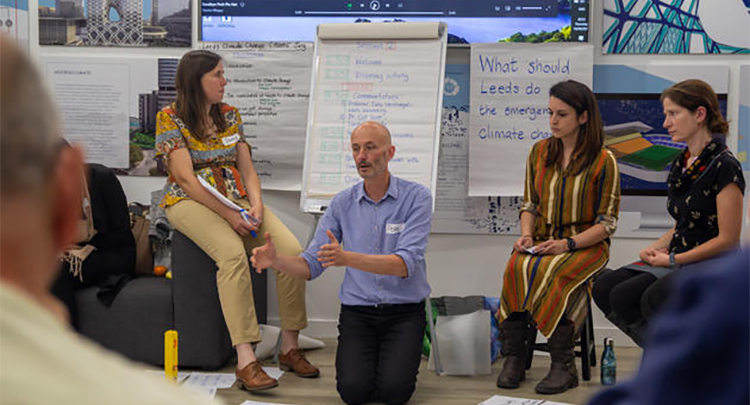PCAN awards


The PCAN Fund was an integral part of the Place-Based Climate Action Network. The aim of the Fund was to stimulate engagement in place-based action beyond the five platforms. It provided small grants to researchers and research users, thus opening the Network to a wider community.
A description of the PCAN Fund is set out below. Please note that the Fund has now completed all its awards and there will be no further rounds.
The fund
The main features of the PCAN Fund were:
- total budget of £400,000 over five years.
- an aspiration to award 20-30 grants in total, implying an average grant size of £20,000. The maximum grant size was £35,000.
- grants were awarded under open calls (that is, any proposals that are relevant to the objectives of PCAN) but there will also be some directed calls (that is, proposals on specific topics identified by PCAN stakeholders).
Applications could be made under five headings:
- impact grants (e.g., co-production of decision-relevant knowledge)
- engagement grants (e.g., events, secondments, campaigns)
- research grants (aimed preferentially at early career researchers)
- training grants (e.g. skill development)
- innovation grants (e.g. seed-funding for new initiatives or products)
A new PCAN Fellowship for early career researchers was added in April 2020 as another element of the funding call.
Funding rounds
There were three funding rounds (previously four; two were amalgamated). The first two rounds were for £105,000 (in 2019; five awards) and £160,000 (in 2020; six awards) respectively. The third and final round was in 2021 and made a total award of £110,945 (four awards).
Award recipients
- Peter Bryant (Shared Future) and Lucy Stone (Agulhas Climate Hub): Climate Assemblies and Juries: the how and why (£10,000)
- Edinburgh World Heritage Trust: Climate change risk and vulnerability assessment of Edinburgh World Heritage Site (£29,000)
- Karl Harder (Abundance Investment): Building local green investment markets using Community Municipal Bonds (£11,00)
- Clare McKeown (Belfast City Council): Building Capacity knowledge and skills in the transition to low carbon economy in order to ensure a just transition (£28,000)
- Rebecca Willis (Lancaster University): Supporting local officers and politicians in three UK cities to implement rapid climate action (£27,400)
- Integrating climate resilience and social justice into a framework for recovery in Preston after Covid-19 (Mark Dooris, University of Central Lancashire)
- Local climate governance: Developing effective climate policy in a multi-authority local area (Ian Christie, University of Surrey)
- Contribution of regional adaptation and insurance expertise to climate resilience (Nick Pyatt, Trioss)
- Lina Brand Correa (University of Leeds): The green path to recovery: Towards a participatory and place-based economy (Fellowship)
- Matthew Lane (University of Edinburgh): Place as adaptation: Understanding neighbourhood resilience in the aftermath of Covid-19 (Fellowship)
- Alice Hague (James Hutton Institute, Aberdeen): Place-based climate action in north-east Scotland: Investigating climate action where urban and rural meet (Fellowship).
- Building an understanding of how local citizens perceive the co-benefits of climate action (Neil Jennings, Imperial College, London)
- Enabling place-based climate action to address consumption-based emissions (Anne Owen, University of Leeds)
- Building a rural resilience network in Northern Ireland, aware of climate risk and resilience options and preparing for a just transition for the agricultural sector (Jade Berman, Climate Northern Ireland)
Research dissemination
Community Municipal Investments
This PCAN-funded project was carried out in partnership with Abundance Investment and found that residents want local authorities to act on climate change and are attracted by the prospect of being part of a collective solution.
Climate Resilience, Social Justice and COVID-19 Recovery in Preston
This PCAN-funded project explored, both conceptually and with stakeholders from Preston’s anchor institutions and diverse communities, how disruption from one threat might galvanise momentum to address another.
Planning Decisions, Adaptive Capacity & Insurability
This PCAN-funded project aimed to understand the capacity of Local Authority Planning Departments to manage the long term impacts from climate change on flooding.

